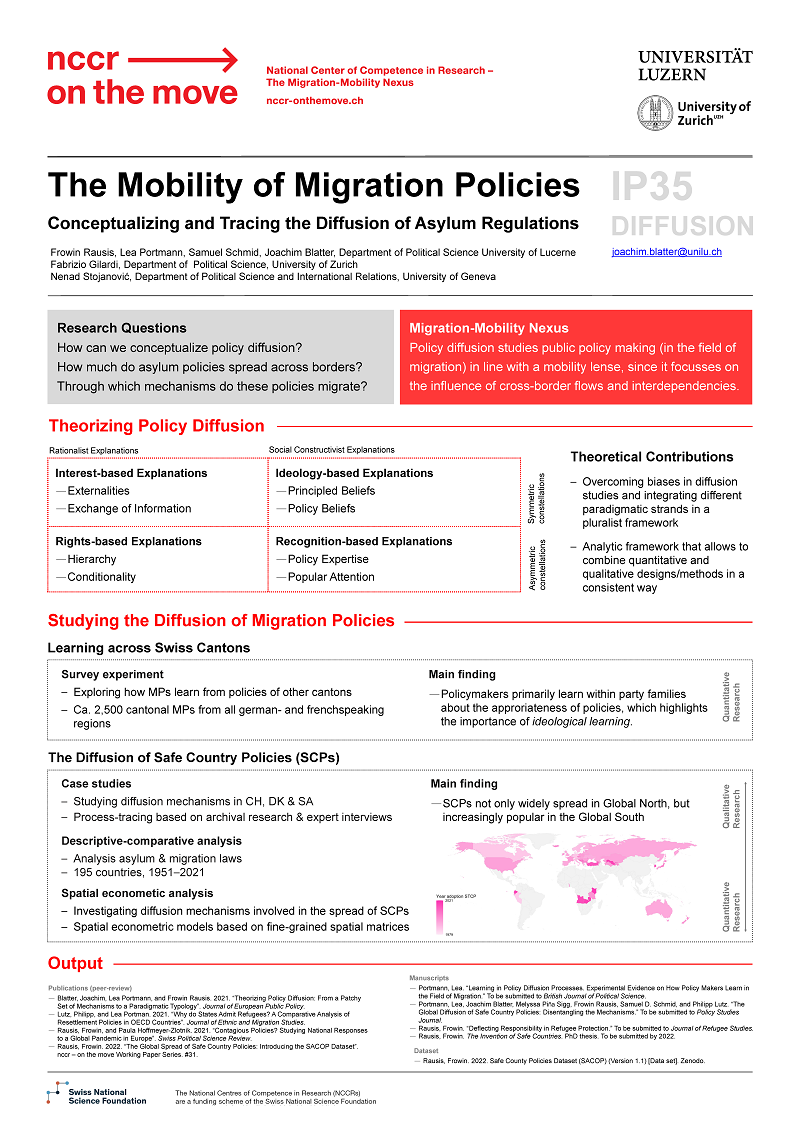Joachim Blatter and Fabrizio Gilardi
The Mobility of Migration Policies: Pathways and Consequences of the Diffusion of Migration Policies
Project Summary
The movement of people across national boundaries creates interdependencies among migrant countries of destination, but also between migrant countries of origin and destination. In this situation, states can act autonomously and compete in attracting/repelling migrants, but they can also adopt more cooperative approaches and learn from each other or develop joint norms.
In this project, we analyze how migration policies in other nation-states and/or at the supranational level influence national migration policies and examine the consequences of interdependent policy-making on the content and character of migration policies. We focus on asylum policy because of its political and practical salience. In addition, this field provides ideal conditions for analysis since asylum policies are cast in the discourse on human rights, but they are also discussed in terms of the costs (and benefits) of granting asylum. We also use an original global panel dataset on Safe Country Policies to test our newly developed theoretical framework that can be applied to policy diffusion more broadly too.
Scientific Poster 2022 (PDF)
Key Findings:
- From 1960 onwards, an increasing number of countries have introduced National Asylum Framework to formally establish and regulate entry channels for asylum seekers and refugees (see the data visualization here).
- However, discretionary approaches without formal legal frameworks persist to this day. 73 states across the globe still follow this approach, especially in the Caribbean, North Africa, Oceania, and Asia.
- The global spread of National Asylum Frameworks is closely linked to the introduction of Safe Country Policies. Especially Safe Third Country Policies have been widely adopted (across 65 states until 2021).
- Against the conventional view, Safe Country Policies are not only prevalent in the Global North but are increasingly popular in Central Asia and Sub-Saharan Africa.
- As anticipated by our theoretical framework, there is evidence that policymakers learn within party families about the appropriateness of policies, which highlights the importance of ideological learning.
Project-related scientific publications


